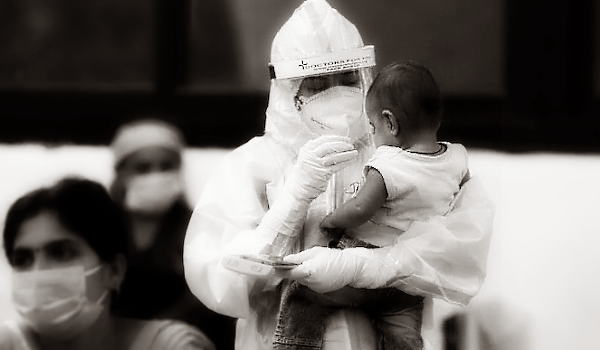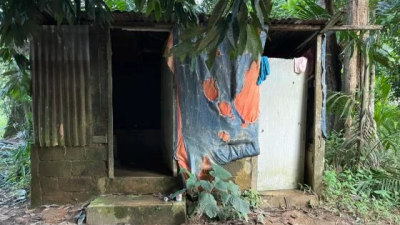Sin Chew Daily
A Malay couple in Bahau have died of COVID-19, leaving behind a pair of 12- and eight-year-old children.
Prior to this, a similar tragic event took place in Port Dickson, with both the parents killed by the virus leaving behind some very young children.
How many children have lost their parents to the virus since the start of the pandemic? So far we still do not have the complete data here in Malaysia.
But if we were to take the data in India as a reference — where out of every 200 COVID-19 deaths, one has involved a family in which both the parents are killed by the virus, leaving behind unattended orphans (plus as many as 2.13% single-parent families) — then we can estimate around 28 cases in Malaysia involving broken families with both the parents killed, and 117 with either the father or the mother lost to the virus.
And the sad thing is, there is no immediate end to such tragedies.
All of a sudden these ill-fated children have lost the people they have depended on so much, and they are lucky if they are subsequently adopted by their older relatives. Otherwise, they will end up staying in an orphanage.
Oliver Twist, the celebrated novel by Charles Dickens published in 1838, was a book many of us read when we were much younger. It depicts the miserable life of Oliver Twist, an orphan, and what happens to him after escaping from the workhouse. The storyline remains vividly etched into our heads to this day.
Things might have changed a lot today. While adequate education may be provided in a modern orphanage, the pain of having lost both the most beloved parents is nothing these young souls can wipe off from their memories just that. Even the counseling services offered to them only provide a momentary solace from the chronic affliction. Because of this, sending an orphaned child to such an institution will never be the most ideal transit stop for him or her.

In a study conducted by Lumos, a charity founded by Harry Potter's author JK Rowling, children growing up in orphanages and similar asylums will suffer from severe emotional distress. Compared to their peers growing up in normal healthy families, these kids are 500 times more likely to take their own lives, 40 times more likely to commit a crime, and ten times more likely to be involved in prostitution, when they get older. As if that is not enough, their IQ is markedly lower than that of ordinary children.
It's very simple! Even if the staff at the institution are very caring and dedicated, they will never treat you as if you are their child. The kids inside are made to lead a rigid and structured life in full compliance with the rules, and you are hoping against hope for someone to offer the most tender care day and night which is only possible from your very own parents.
To these kids, spending ten over years in an institution like this is sheer torment. This probably explains why Dickens' Oliver has tried so hard to escape from the workhouse.
Having visualized this reality, Lumos has called for the closing down of orphanages in favor of the "adoption" approach so that orphaned children can start a new life in a new family. This is the only way for them to grow up healthily.
The pandemic is not going to leave us anytime soon. The women, family and community development ministry should perhaps take the initiative to intervene in orphaned or single-parent families, make arrangements for adoption families and schools, and offer special long-term living allowances in order to help these psychologically battered, underprivileged children through their growing years.
Today, the authorities and the society in general are more concerned about when the pandemic will be contained and when the lockdown can be lifted, or how the companies are going to survive. But if even the government is cash-strapped, what about the people in the street?
The thing is, they are all still alive, and being alive itself is a source of hope.
What if the virus comes after you and there are people in your family claimed by the virus? The pain of losing the loved ones is simply beyond words can describe.
What about the future of the children who have lost their parents to the virus? They still have very long years ahead of them that they need to brave through.
After this whole pandemic is eventually over, we will be left with countless of orphaned children in need of our special care.
Throughout the course of the pandemic, sad stories keep being told. We have this obligation to offer our hands to people who have unfortunately surrendered their loved ones to the gruesome virus.
There is always hope as long as we stay alive. Let us all work together in unity to win this war!
ADVERTISEMENT
ADVERTISEMENT


































